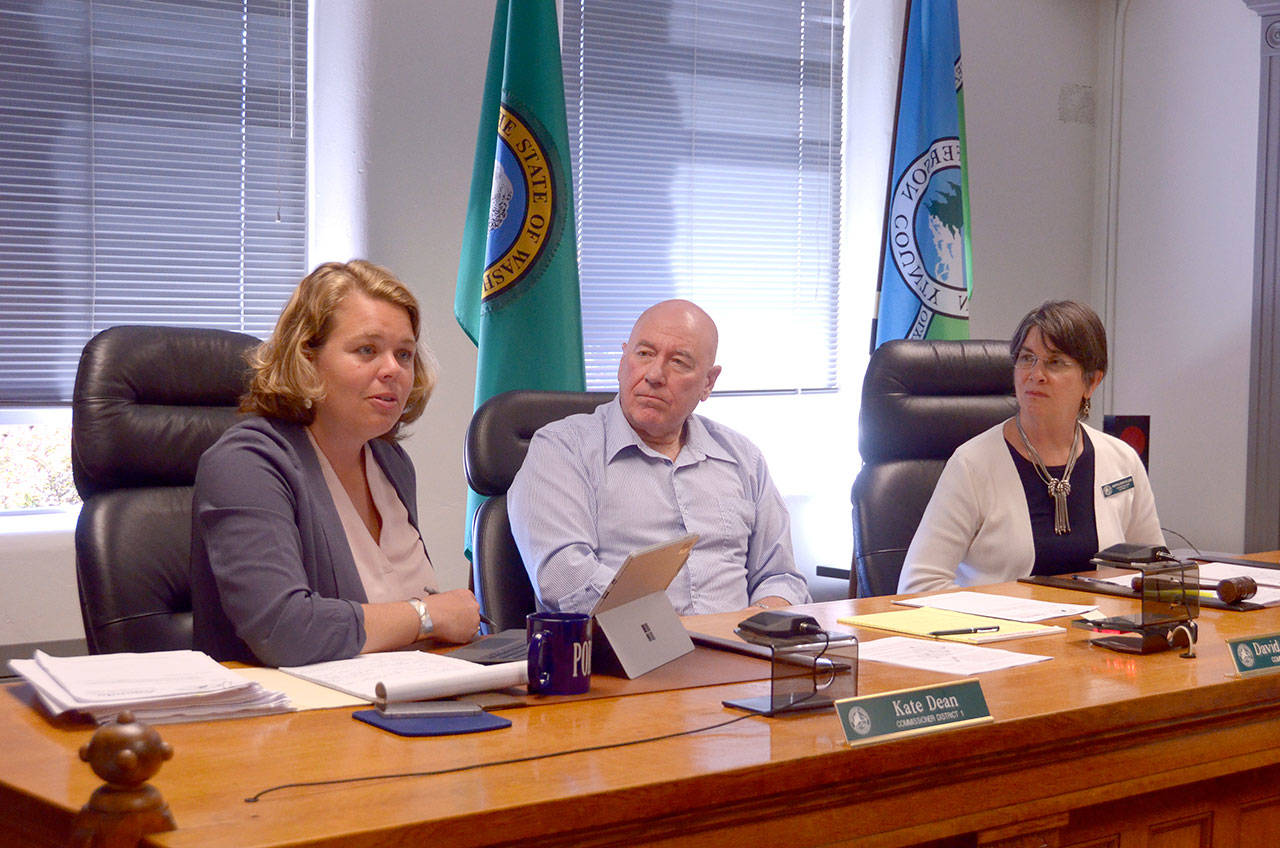PORT TOWNSEND — Voters in Jefferson County will decide in November if they want to create the Housing Opportunity Fund, which would be funded by levying a property tax and would fund low-income and very-low-income housing projects in the county.
Jefferson County Commissioners on Monday approved placing a measure on the Nov. 7 ballot to fund the Housing Opportunity Fund.
They also declared an emergency in the availability of affordable housing for low-income and very low-income residents.
The commissioners were required to declare an emergency to allow the vote on the proposed property tax, which at 36 cents per $1,000 assessed value would raise property taxes over the 1 percent cap set by the state.
The seven-year fixed levy would be expected to raise $1.9 million per year, or $13 million to $13.9 million over seven years, which would go toward the Housing Opportunity Fund.
Two amendments were added to the resolution because of public testimony from the county’s departments of Public Health and Community Development.
Because of a recommendation from Jefferson County Public Health, county staff added three paragraphs that link affordable housing and positive health outcomes. The information cites the Centers for Disease Control and Prevention as finding that insecure housing and homelessness negatively affected the lifelong health of children as well as diminished their opportunities to thrive and added to the likelihood of them become victims of violence.
Because of the Department of Community Development recommendation, a paragraph was added to allow the county to consider changing certain regulations to allow churches and nonprofits to run “temporary transitory accommodations” on their properties.
Those changes to the resolution will be published in an updated draft of the resolution and available on the county’s website, www.co.jefferson.wa.us.
The commissioners unanimously passed both the amendments and the final resolution at a meeting attended by a little over a dozen people, as compared to the more than 100 who turned out for the public hearing on the resolution last week.
During Monday’s meeting, commissioners spoke for almost an hour and a half and addressed many of the concerns brought up by the public during the public hearing and submitted in written testimony.
“It’s evident that a lot more information needs to get out before we vote,” said Commissioner David Sullivan.
Sullivan, who helped draft the resolution, said he was in favor of it passing because he thinks some real progress can be made.
“I think we can make a huge impact by leveraging funds,” Sullivan said. “There’s a lot of other things we need to do but these people are still going to need housing.”
Commissioner Kate Dean added that 18 months ago she would’ve qualified as low-income under the standards set by the levy, which are based on information from the U.S. Department of Housing and Development. But now, as a single-mother and homeowner, she would feel the financial burden of more taxes.
“I feel I’ve experienced both sides of this issue,” Dean said. “I do want to acknowledge that this isn’t a perfect tool, but I hear my constituents saying this isn’t a perfect tool, but it’s the tool we have right now.”
Kler spoke along the same lines as the other commissioners. She said while the levy idea isn’t perfect, it is a way to tackle a very immediate crisis.
“What we’ve heard is this is just a Band Aid measure,” Kler said. “I flashed back to my ER days as a nurse and when someone comes in bleeding, that needs to be stopped.
“Even if that’s just a symptom of the problem it can quickly become a very real problem.”
The decision by the commissioners does not approve the property tax, but does allow the ballot measure to be voted on during the November general election. The measure needs a simple majority to pass.
If approved, the measure would create the Home Opportunity Fund through a property tax. One-third of the tax revenue would go toward building, restoring and maintaining low-income housing projects while the other two-thirds would go toward very-low-income housing.
According to Housing and Urban Development, very low-income is described as making 50 percent or less of the local median income. Low-income is 80 percent or less of the local median income.
In Jefferson County, a single person making $22,550 per year would qualify as very low-income and a single person making $36,050 per year would qualify as low-income.
That is based off the county’s median income of $47,202 per year, according to the 2014 U.S. Census.
The fund would be a dedicated fund, so it could be used only for affordable housing, and would be overseen by a citizen committee. The committee would review applications for housing projects and the money from the Home Opportunity Fund would be used leverage more money from State and Federal grants.
The levy would expire in 2021. To be continued after that, it would have to be put on the ballot and voted on again.
“That is only if the program works and there is an appetite to continue it,” said county Administrator Philip Morley. “It might just expire.”
________
Jefferson County Editor/Reporter Cydney McFarland can be reached at 360-385-2335, ext. 55052, or at cmcfarland@peninsuladailynews.com.

